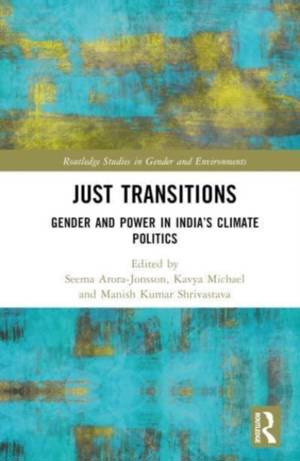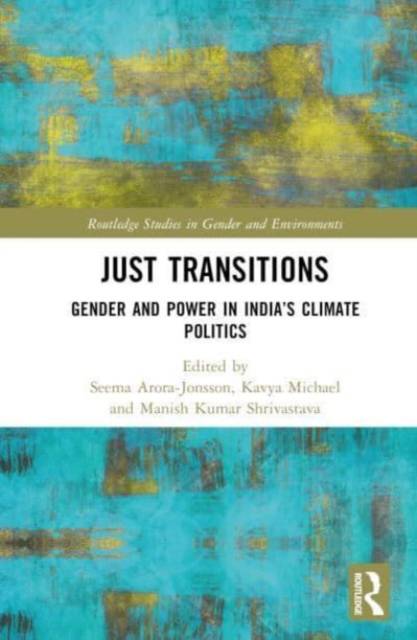
- Retrait gratuit dans votre magasin Club
- 7.000.000 titres dans notre catalogue
- Payer en toute sécurité
- Toujours un magasin près de chez vous
- Retrait gratuit dans votre magasin Club
- 7.000.0000 titres dans notre catalogue
- Payer en toute sécurité
- Toujours un magasin près de chez vous
Just Transitions
Gender and Power in India's Climate Politics
Description
This book turns critical feminist scrutiny on national climate policies in India and examines what transition might really mean for marginalized groups in the country.
A vision of "just transitions" is increasingly being used by activists and groups to ensure that pathways towards sustainable futures are equitable and inclusive. Exploring this concept, this volume provides a feminist study of what it would take to ensure just transitions in India where gender, in relation to its interesting dimensions of power, is at the centre of analysis. With case studies on climate mitigation and adaptation from different parts of India, the book brings together academics, practitioners and policymakers who provide commentary on sectors including agriculture, forestry and renewables. Overall, the book has relevance far beyond India's borders, as India's attempt to deal with its diverse population makes it a key litmus test for countries seeking to transition against a backdrop of inequality both in the Global North and South.
This volume will be of great interest to students and scholars of climate policy, gender studies, sustainable development and development studies more broadly.
Spécifications
Parties prenantes
- Editeur:
Contenu
- Nombre de pages :
- 264
- Langue:
- Anglais
- Collection :
Caractéristiques
- EAN:
- 9780367499686
- Date de parution :
- 04-10-23
- Format:
- Livre relié
- Format numérique:
- Genaaid
- Dimensions :
- 156 mm x 234 mm
- Poids :
- 580 g






